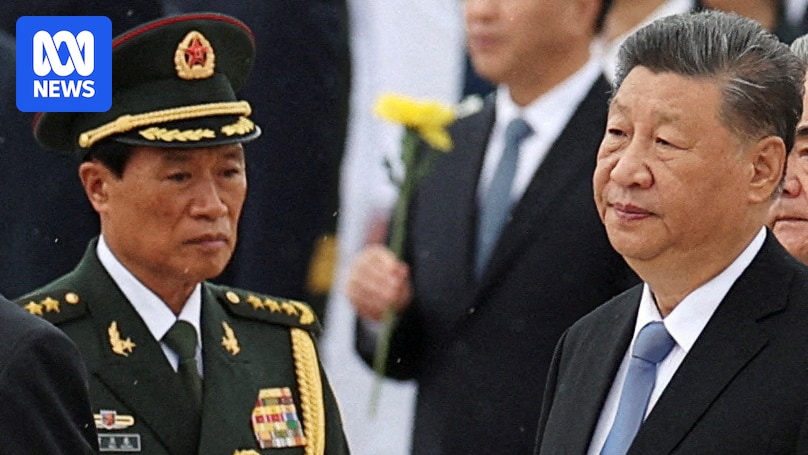
In a significant move within China’s military and political landscape, two of the nation’s top military leaders have been expelled from the ruling Communist Party and the military on corruption charges. The country’s defense ministry announced the expulsions, marking a pivotal moment in an anti-corruption campaign that began in 2023.
General He Weidong, China’s second-most-senior general, and Admiral Miao Hua, the former top political officer of the Chinese military, are the latest high-profile figures to be targeted in this sweeping campaign against corruption within the People’s Liberation Army (PLA). The removal of General He is particularly noteworthy as it is the first time a sitting member of the Central Military Commission has been ousted since the Cultural Revolution from 1966 to 1976.
The announcement comes just days before the Communist Party’s Central Committee is scheduled to convene for its Fourth Plenum in Beijing, where further personnel decisions are anticipated. This includes the potential expulsion and replacement of Central Committee members, underscoring the broader implications of this crackdown.
Details of the Expulsions
According to defense ministry spokesperson Zhang Xiaogang, General He, Admiral Miao, and seven other senior military officials “seriously violated party discipline and are suspected of serious duty-related crimes involving an extremely large amount of money.” The statement emphasized the grave nature of their offenses and the detrimental consequences they posed.
General He, aged 68, held a significant role beyond the military as a member of the 24-member Politburo, the Communist Party’s second-highest echelon of power. As one of the two vice-chairmen of the Central Military Commission, he was considered the third-most-powerful commander of the PLA and a close associate of President Xi Jinping.
Implications for China’s Military and Political Landscape
The expulsions are seen as a strategic move by President Xi Jinping to consolidate power within the military. Wen-Ti Sung, a fellow at the Atlantic Council’s Global China Hub, noted, “Xi is cleaning house for sure. The formal removal of He and Miao means he will get to appoint new members of the Central Military Commission — which has been virtually half empty since March — at the Plenum.”
Admiral Miao had already been removed from the Central Military Commission in June after being investigated for “serious violations of discipline” last November. Other officials named in the announcement include He Hongjun, Wang Xiubin, Lin Xiangyang, and two former political commissars of the Chinese army and navy. Observers have pointed out that many of these officials had been absent from public view for several months.
Historical Context and Future Implications
General He’s ties to President Xi date back to their overlapping service in Fujian and Zhejiang provinces in the late 1990s. Xi held the position of deputy party secretary and governor of Fujian province between 1995 and 2002. General He joined the military commission after commanding the PLA’s Eastern Theatre in Fujian, a critical region facing Taiwan.
In 2022, General He was promoted directly to vice-chair of the military commission, bypassing the usual step of serving on the 205-member Central Committee. The Pentagon noted that he played a key role in planning live-fire drills around Taiwan following a controversial visit by Nancy Pelosi, then the speaker of the US House of Representatives, to Taipei in August 2022.
The expulsions underscore President Xi’s determination to root out corruption and reinforce loyalty within the military ranks. As the Central Committee meeting approaches, the political landscape in China remains tense, with potential further purges and appointments expected to shape the future of the country’s military and political hierarchy.
The move represents a clear signal from the Chinese leadership about its stance on corruption and the lengths it is willing to go to maintain control over its military forces. Observers will be closely watching the outcomes of the upcoming Plenum for indications of how this campaign will continue to unfold.







